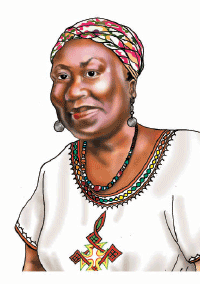A group of young people at the Obafemi Awolowo University, called ‘The Reflector Team’, recently invited me to give a talk on the topic of this article. This is an abridged version of that presentation.
The 2015 elections were seen as being of great significance in Nigeria’s history. Palpable fear of the country’s possible disintegration and serious post-election violence had gripped not only Nigerians but the entire world while a rather vicious campaign played out between the two Presidential frontrunners and their political parties. When nothing of the sort occurred, the world heaved a great sigh of relief, and congratulatory messages came pouring in from far and near. Nigeria has scaled a major hurdle, undoubtedly. We had managed to effect a smooth passage of power between two political parties; but the real work of entrenching democracy and rebuilding the nation now lies ahead.
As to where we were on the eve of the elections, we all are familiar with listing our woes. Even our leaders who were supposed to work and help us attain better standards of living apparently took delight in reeling out to us facts and figures which showed us as occupying the very last rungs of the ladder on practically every single development index. We were a country divided along ethnic and religious lines (that is, ethnicity and religion were being used to divide); our economic outlook was bleak due to the fall in the price of crude oil and the profligate depletion of our savings, especially the Excess Crude Account; we had a plethora of social ills plaguing us, including endemic corruption, Boko Haram insurgency and other forms of violence (armed robbery, rape); our work ethics was poor, resulting in very low productivity.
Other calamities were a dilapidated infrastructure and a dysfunctional public service delivery system; a high rate of poverty among the populace, with much time spent on drudgery like fetching water; at the same time, obscene levels of luxury among the political class, the rich and powerful; a visionless and incompetent leadership, with public office seen primarily as a means of personal enrichment; a large section of “vulnerable subpopulations” suffering varying degrees of exclusion, including children, unemployed youth, women, people living with disabilities, and the aged; an abysmally low participation of women (representing half of the population) in politics and public life in general; and overall, a lack of confidence in the future of the country manifesting in apathy, despair, hopelessness among the general populace.
So, where do we go from here? Simply put, we must strive to reverse all the evils that have been outlined above! However, this could only happen with a responsive and visionary leadership. Our past leaders were said to be unwilling to give us better conditions of living, not that they were unable to. During their constant trips abroad they saw how people lived in those countries, but selfishness and excessive greed prevented them from desiring and working to replicate such conditions in their own country.
For the country to move decisively towards development, urgent attention must be paid to the following areas:
– We must evolve into a society that is more just and equitable. 80 per cent of the nation’s resources cannot continue service less than 20 per cent of our population (with the National Assembly taking more than 25 per cent of our overall budget, as revealed by former CBN governor and now Emir of Kano, Alhaji Lamido Sanusi)
– The war against corruption declared by President Muhammadu Buhari must be fought and won, while the nation looks forward to the appointment of people with integrity as members of the President’s cabinet.
– General insecurity and the war against Boko Haram must be fought relentlessly and won. Steps must be taken to increase order and security in the whole country, like lighting up our roads and neighbourhoods.
– A vibrant citizenry is needed to participate more actively in public life, demanding accountability from elected officers. Civic education is required, in schools and on radio and television.
– There must be a deliberate effort to nurture future leaders by empowering and developing leadership skills in our young people. Nigerian youths have proven themselves in several other fields; they should be brought into politics too.
– Women’s active participation in Nigeria’s public life is crucial – that is, beyond a few political appointments and beyond 35 per cent. The nation is being robbed of the balancing and tempering perspective which women bring to policy-making, and is paying seriously for it. For example, women are known to favour committing more funds to education and the provision of social services, and this has a stabilising effect on society, leading to reduction in violence and criminality.
– The special and specific needs of the vulnerable subpopulations must be addressed for greater inclusion: protection of girls against rape and early marriage; protection of widows from harassment by their deceased husband’s family; Braille and wheelchair access in public places; etc.
– Increased productivity of the Nigerian worker and the diversification of our economy (agriculture, mining, tourism, etc.)
– An increased consciousness of the crucial role that Nigeria must play in the eventual development of Africa and the black race, and the conviction that the responsibility rests solely upon our shoulders.
– Institutionalisation of good governance: rule of law, incorrupt judiciary, zero-tolerance for corruption.
– Restoration of positive social values: respect and dignity for all, which will lead to greater harmony in the country.







